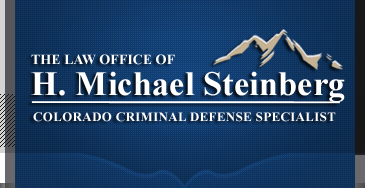






A Guide To The Colorado Criminal Statute Of Limitations – 16-5-401 CRS
By H. Michael Steinberg Colorado Criminal Defense Lawyer – Attorney
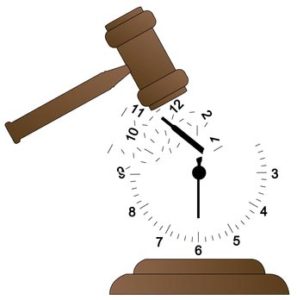
A Guide To The Colorado Criminal Statute Of Limitations – 16-5-401 CRS
A Guide To The Colorado Criminal Statute Of Limitations – 16-5-401 CRS – Tackling Colorado’s Criminal Statute of Limitations 16-5-401 is a major task. The law is changed often – has many sections specific to certain crimes – and requires close study at times to determine whether a Colorado criminal case can be pursued in court.
What Is A Criminal Statute Of Limitations?
Essentially, a criminal statute of limitation is a time limit after which criminal charges can no longer be filed. The reasoning behind the statute of limitation is important.
Many laws compete against one another on a policy basis. They create a kind of tension that ebbs and flows based on changing norms. The most important policy effectuated by the Colorado criminal statute of limitation is the protection of the Defendants. These laws exist primarily to protect the rights of each of us.
Statutes of limitation are intended to ensure fair trials – the thinking is that the Government’s evidence – deteriorates over time and that deterioration directly impacts the ability of an accused to defend a case
It is simply not fair to punish someone for behavior that happened too long ago.
Unlike other methods of defending a criminal case a statutes of limitations is a “non-exculpatory” defense to a criminal charge – meaning that even if the Defendant is guilty, the statute of limitations prohibits a conviction if a criminal case is not timely commenced.
Legislatures will create and then modify statutes of limitation to balance the Government’s need for sufficient time to uncover, investigate, and prosecute crimes as against the Defendant’s interest in removing the threat of prosecution for stale crimes committed many years ago.
Certain Crimes – So Serious – No Statute Of Limitations
In Colorado, some crimes are so serious – such as murder or sexual assault on a child – there is no statute of limitations. For these crimes the State of Colorado can charge someone with the offense no matter how long ago it is alleged to have happened.
Once The Time Limit For Filing Has Expired
Colorado’s State legislature can eliminate or change a criminal statute of limitations within certain parameters. Once expired, the Colorado State Legislature cannot expand a criminal statute of limitation for a crime that has allegedly been committed. That prohibition falls within the constitutional protection of the prohibition against an ex post facto law (punishing an act after it is committed).
On the other hand the Colorado State legislature CAN and HAS extended limitations periods for crimes allegedly committed before the extension – that is – the existing statute of limitations cannot have run before it is extended.
When Does The Clock Start For The Colorado Criminal Statute Of Limitations?
The so-called “clock” for the start of the running of the Colorado statute of limitations – as a general rule – when the alleged crime is complete. One example, simple assault has an 18 month statute of limitations – therefore the clock starts running from the date the assault takes place and runs out on the last day of the 18 month period.
The confusion begins when you have – not a single act – but a series of acts that may span days, weeks and months. While the clock starts “ticking” at the moment of the first act – it can run much longer than the given statute of limitations would normally run out. One example here is a lengthy “conspiracy” that does not end until the last “overt act” is committed.
Again, the general rule is, absent an exception for such crimes as sexual assaults or murder, a period of limitation runs without interruption from the moment a crime is committed until the prosecution is commenced – or not commenced as the situation may be.
More On The “Continuous Or Continuing” Crime
A “continuous offense” or “continuing offense, ” like the crime of conspiracy (above) is a continuous, unlawful act or series of acts set in motion by a single act. Unlike other kinds of crimes, the continuing offense does not terminate by a single act or fact – but continues until no other acts can be “connected” to it.
Clearly, the State of Colorado will try everything it can to defeat a Defendant’s claim that “the statute ran” – Deputy District Attorneys do this by trying to “fit” otherwise expired cases into the continuing crime category – most of the time failing in the effort.
Does “The Clock” Stop For Any Reason – The “Tolling” Of The Colorado Criminal Statute Of Limitations?
The running out of the Colorado criminal statute of limitations “clock” generally means that the accused has usually won. However, there are some policy based exceptions that “toll” – or pause the “clock” of the statutes of limitations, – thus extending out the deadline at the end of the Statute of limitations (“SOL”) time period.
In Colorado, the criminal statute of limitations is extended by up to five years, if the suspect leaves the state. The statute is “tolled” during those years. Tolling means that the statute of limitations is temporarily suspended. If an alleged suspect intentionally goes into hiding or lives out of state or out of the country, the statutory clock restarts when they returns to the state of Colorado.
Colorado Statutes Of Limitations Are Both General And Specific – (It Can Be Complicated)
There are general periods of limitations of certain classes of crimes. One example is the broad rule for misdemeanors. The eighteen months statute of limitations for Colorado misdemeanors has very few exceptions.
On the other hand, as you view the Colorado Statute of Limitation Statute (below) the time period of the statute can be very specific to a very specific types of crimes.
The Colorado Statute Of Limitations – An Analysis Of The Law Section By Section
§ 16-5-401 – Limitation for Commencing Criminal Proceedings and Juvenile Delinquency Proceedings (Current Through 2016 Legislation)
§ 16-5-401 – Limitation for Commencing Criminal Proceedings and Juvenile Delinquency Proceedings (Current Through 2016 Legislation)
[HMS – Colorado’s Statute of Limitations is one of the most convoluted and poorly written laws in the Colorado criminal code – I will do my best to comment on each section. Section 1(a) sets out the general nature of a statute of limitation.]
(1) (a) Except as otherwise provided by statute applicable to specific offenses, delinquent acts, or circumstances, no adult person or juvenile shall be prosecuted, tried, or punished for any offense or delinquent act unless the indictment, information, complaint, or petition in delinquency is filed in a court of competent jurisdiction or a summons and complaint or penalty assessment notice is served upon the defendant or juvenile within the period of time after the commission of the offense or delinquent act as specified below:
[HMS – The following section provides the GENERAL RULE for certain crimes and certain categories of crimes, such as felonies, misdemeanors and comments on each section by the author.]
Murder, kidnapping, treason, any sex offense against a child, and any forgery regardless of the penalty provided: – NO LIMIT
Attempt, conspiracy, or solicitation:
to commit murder;
to commit kidnapping;
to commit treason;
to commit any sex offense against a child; and
to commit any forgery regardless of the penalty provided: – NO LIMIT
Vehicular homicide, except as described in paragraph (a.5) of this subsection (1); leaving the scene of an accident that resulted in the death of a person: – FIVE YEARS
Other felonies: – THREE YEARS
Misdemeanors: – EIGHTEEN MONTHS
Class 1 and 2 misdemeanor traffic offenses: – ONE YEAR
Petty offenses: – SIX MONTHS
[HMS – Section (a.5) addresses the crime of Vehicular Homicide and Leaving The Scene of An Accident – resulting in the death of a person. The reason for the increase is the difficulty in discovering the crime.]
(a.5) The period of time during which an adult person or juvenile may be prosecuted for the offense of vehicular homicide, as described in section 18-3-106, C.R.S., and leaving the scene of an accident that resulted in the death of a person, as described in section 42-4-1601(2) (c), C.R.S., when both offenses are alleged to have occurred as part of the same criminal episode in the same indictment, information, complaint, or petition in delinquency filed in a court of competent jurisdiction is ten years.
…
[HMS – The following section defines certain terms used in the law – to look up the law on any of the following or preceding sections – use this LINK]
(c) For purposes of this section:
(I) “Delinquent act” has the same meaning as defined in section 19-1-103(36), C.R.S.
(II) “Juvenile” means a child as defined in section 19-1-103(18), C.R.S.
(III) “Petition in delinquency” means any petition filed by a district attorney pursuant to section 19-2-512, C.R.S.
(IV) “Sex offense against a child” means any “unlawful sexual offense”, as defined in section 18-3-411(1), C.R.S., that is a felony.
[HMS – The next several sections deal with a variety of SEX CRIMES – each section must be read to see if it applies to the crime charged .]
(1.5) (a) Except as otherwise provided in paragraph (b) of this subsection (1.5), the provisions of paragraph (a) of subsection (1) of this section concerning sex offenses against children shall apply to offenses and delinquent acts committed on or after July 1, 1996.
(b) The provisions of paragraph (a) of subsection (1) of this section concerning sex offenses against children shall apply to an offense or delinquent act committed before July 1, 1996, if the applicable statute of limitations, as it existed prior to July 1, 2006, has not yet run on July 1, 2006.
(c) It is the intent of the general assembly in enacting the provisions of paragraph (a) of subsection (1) of this section concerning sex offenses against children to apply an unlimited statute of limitations to sex offenses against children committed on or after July 1, 1996, and to sex offenses against children committed before July 1, 1996, for which the applicable statute of limitations in effect prior to July 1, 2006, has not yet run on July 1, 2006.
[HMS – Section (2) is the TOLLING SECTION of the law – providing for a 5 YEAR tolling when a Defendant is not in the State of Colorado (whether their absence is their fault or not).]
(2) The time limitations imposed by this section shall be tolled if the adult offender or juvenile is absent from the state of Colorado, and the duration of such absence, not to exceed five years, shall be excluded from the computation of the time within which any complaint, information, indictment, or petition in delinquency must otherwise be filed or returned.
[HMS – This tolling section applies when a case is appealed – for example – and the case is dismissed or reversed on appeal and then THAT decision is reversed.]
(3) (a) The period within which a prosecution must be commenced does not include any period in which a prosecution is pending against the adult defendant or juvenile for the same conduct, even if the indictment, information, complaint, or petition in delinquency which commences the prosecution is quashed or the proceedings thereon are set aside or are reversed on appeal.
[HMS – Section (3) (b) applies when a case is mistakenly filed in the wrong court – as in the situation where a juvenile is actually an adult and vice versa.]
(b) The period within which a prosecution must be commenced does not include any period in which a prosecution is pending against the adult defendant or juvenile for the same conduct, even if filed in a court without jurisdiction, when based on a reasonable belief the court possesses jurisdiction.
[HMS – Section (4) is the section that applies in the “continuing offense” situation – explained above.]
(4) When an offense or delinquent act is based on a series of acts performed at different times, the period of limitation prescribed by this code or by the “Colorado Securities Act”, article 51 of title 11, C.R.S., starts at the time when the last act in the series of acts is committed.
[HMS –Section (4.5) is a specific statute of limitation for certain crimes – it sets the statute of limitations clock “ticking” when the crime is actually discovered – not when it has been completed. The kinds of crimes addressed in this section can remain hidden for many years.]
(4.5) The period within which a prosecution must be commenced begins to run upon discovery of the criminal act or the delinquent act for:
(a) Offenses relating to the “Uniform Commercial Code”, pursuant to part 5 of article 5 of title 18, C.R.S.;
(b) Computer crime, pursuant to article 5.5 of title 18, C.R.S.;
(c) Theft, pursuant to section 18-4-401, C.R.S.;
(d) Theft of trade secrets, pursuant to section 18-4-408, C.R.S.;
(e) Defacing or destruction of written instruments, pursuant to section 18-4-507, C.R.S.;
(f) Criminal simulation, pursuant to section 18-5-110, C.R.S.;
(g) Obtaining signature by deception, pursuant to section 18-5-112, C.R.S.;
(h) Criminal impersonation, pursuant to section 18-5-113, C.R.S.;
(i) Offering a false instrument for recording, pursuant to section 18-5-114, C.R.S.;
(j) Dual contracts to induce loan, pursuant to section 18-5-208, C.R.S.;
(k) Issuing a false financial statement or obtaining a financial transaction device by false statements, pursuant to section 18-5-209, C.R.S.;
(l) Unlawful activity concerning the selling of land, pursuant to section 18-5-302, C.R.S.;
(m) Offenses relating to equity skimming, pursuant to part 8 of article 5 of title 18, C.R.S.;
(m.5) Offenses relating to identity theft, pursuant to part 9 of article 5 of title 18, C.R.S.;
(n) Offenses relating to bribery and corrupt influences, pursuant to part 3 of article 8 of title 18, C.R.S.;
(o) Offenses relating to abuse of public office, pursuant to part 4 of article 8 of title 18, C.R.S.;
(p) Offenses relating to perjury, pursuant to part 5 of article 8 of title 18, C.R.S.;
(q) Offenses relating to the “Colorado Organized Crime Control Act”, pursuant to article 17 of title 18, C.R.S.;
(r) Unlawful concealment of transactions, pursuant to section 11-107-105, C.R.S.;
(s) Embezzlement or misapplication of funds, pursuant to section 11-107-107, C.R.S.;
(t) Unlawful acts or omissions relating to financial institutions, pursuant to section 11-107-108, C.R.S.;
….
(v) Criminal offenses relating to savings and loan associations, pursuant to section 11-41-127, C.R.S.; and
(w) Criminal offenses relating to securities fraud, pursuant to part 5 of article 51 of title 11, C.R.S.
[HMS – Section (5) is similar to Section (4) and increases the relevant statute of limitations an additional 3 years for certain crimes such as 18-8-302 – Bribery.]
(5) The period of time during which an adult person or juvenile may be prosecuted shall be extended for an additional three years as to any offense or delinquent act charged under sections 18-8-302, 18-8-303, 18-8-306, 18-8-307, 18-8-402, 18-8-406, 18-8-407, 39-21-118, and 39-22-621(3), C.R.S.
[HMS – Section (6) is also similar to Section (4) and increases the relevant statute of limitations an additional 7 years for certain crimes such as 18-6-403 – Sexual Exploitation Of A Child 18-6-403]
(6) Except as otherwise provided in paragraph (a) of subsection (1) of this section pertaining to sex offenses against children or felony sexual assault in violation of section 18-3-402, C.R.S., the period of time during which an adult person or juvenile may be prosecuted shall be extended for an additional seven years as to any offense or delinquent act charged under section 18-6-403, C.R.S., or charged as criminal attempt, conspiracy, or solicitation to commit any of the acts specified in said sections.
[HMS – Section (7) extends the statute of limitations for 2 and one half years for misdemeanor sex crimes committed against children under CRS 18-3-404.]
(7) When the victim at the time of the commission of the offense or delinquent act is a child under fifteen years of age, the period of time during which an adult person or juvenile may be prosecuted shall be extended for an additional three years and six months as to a misdemeanor charged under section 18-3-404, C.R.S., or criminal attempt, conspiracy, or solicitation to commit such a misdemeanor.
[HMS – Section (8) (a) applies to variations of sex crimes against children. It adds ten years to the alleged crime depending on the approximate date of the crime, It also applies based on a cross reference to the other sections referenced in the Section.]
(8) (a) Except as otherwise provided in paragraph (a) of subsection (1) of this section pertaining to sex offenses against children or felony sexual assault in violation of section 18-3-402, C.R.S., and except as otherwise provided in paragraphs (a.3) and (a.5) of this subsection (8), the period of time during which an adult person or juvenile may be prosecuted shall be ten years after the commission of the offense or delinquent act as to any offense or delinquent act:
(I) Charged under section 18-3-403, C.R.S., as said section existed prior to July 1, 2000, or section 18-6-403, C.R.S.;
(II) Charged as a felony under section 18-3-404, C.R.S.; or
(III) Charged as criminal attempt, conspiracy, or solicitation to commit any of the offenses specified in subparagraphs (I) and (II) of this paragraph (a).
[HMS – Section (a.3) applies specifically adds ten years to all sex crimes committed against children under 18 years of age and adds those years after the child reaches 18 years of age. When you see the language “Except as otherwise provided – you need to make certain that your case does not otherwise fall into the Section referenced. If it doesn’t – then the Section applies.]
(a.3) Except as otherwise provided in paragraph (a) of subsection (1) of this section concerning sex offenses against children or felony sexual assault in violation of section 18-3-402, C.R.S., if the victim at the time of the commission of an offense or delinquent act is a child under eighteen years of age, the period of time during which an adult person or juvenile may be prosecuted shall be ten years after such victim reaches the age of eighteen years as to any offense or delinquent act:
(I) Charged as a felony under section 18-3-403, C.R.S., as said section existed prior to July 1, 2000, or section 18-3-404, C.R.S.; or
(II) Charged as criminal attempt, conspiracy, or solicitation to commit any of the offenses specified in subparagraph (I) of this paragraph (a.3).
[HMS – This is the DNA section – In ALL sex crimes – if the identity of a suspect can be determined by DNA IF the crime has been reported to law enforcement within ten years of the alleged commission of the crime, there is NO statute of limitations. This obviously applies where the police find a source of DNA from a suspect much later in time than the original offense allegedly occurred]
(a.5) Except as otherwise provided in paragraph (a) of subsection (1) of this section concerning sex offenses against children or felony sexual assault in violation of section 18-3-402, C.R.S., in any case in which the identity of the defendant or juvenile is determined, in whole or in part, by patterned chemical structure of genetic information, and in which the offense has been reported to a law enforcement agency, as defined in section 26-1-114(3) (a) (III) (B), C.R.S., within ten years after the commission of the offense, there shall be no limit on the period of time during which a person may be prosecuted after the commission of the offense as to any offense or delinquent act charged:
….
(II) Under section 18-3-403, C.R.S., as said section existed prior to July 1, 2000; or
….
(IV) As criminal attempt, conspiracy, or solicitation to commit any of the offenses specified in subparagraph (II) of this paragraph (a.5).
[HMS – The following and remaining sections are specific to mostly sex crimes where the dates of the crimes fall within certain dates or apply when certain crimes are charged – they are self explanatory.]
(a.7) (I) Except as otherwise provided in paragraph (a) of subsection (1) of this section pertaining to sex offenses against children and except as otherwise provided in paragraphs (a.3) and (a.5) of this subsection (8), the period of time during which an adult person or juvenile may be prosecuted shall be twenty years after the commission of the offense or delinquent act as to any offense or delinquent act charged as a felony under section 18-3-402, C.R.S., or as criminal attempt, conspiracy, or solicitation to commit a felony under section 18-3-402, C.R.S.
(II) Except as otherwise provided in paragraph (a) of subsection (1) of this section concerning sex offenses against children, if the victim at the time of the commission of an offense or delinquent act is a child under eighteen years of age, the period of time during which an adult person or juvenile may be prosecuted shall be twenty years after such victim reaches eighteen years of age as to any offense or delinquent act charged as a felony under section 18-3-402, C.R.S., or as criminal attempt, conspiracy, or solicitation to commit a felony under section 18-3-402, C.R.S.
(III) Except as otherwise provided in paragraph (a) of subsection (1) of this section concerning sex offenses against children, in any case in which the identity of the defendant or juvenile is determined, in whole or in part, by patterned chemical structure of genetic information, and in which the offense has been reported to a law enforcement agency, as defined in section 26-1-114(3) (a) (III) (B), C.R.S., within twenty years after the commission of the offense, there shall be no limit on the period of time during which a person may be prosecuted after the commission of the offense:
(A) As to any offense or delinquent act charged as a felony under section 18-3-402, C.R.S.;
(B) Under any other criminal statute if the offense is a felony or would be a felony if committed by an adult and is based on the same act or series of acts arising from the same criminal episode as the offense or delinquent act charged as a felony under section 18-3-402, C.R.S.; except that this sub-subparagraph (B) does not apply if the court finds that there is no probable cause for the felony under section 18-3-402, C.R.S.; or
(C) As to criminal attempt, conspiracy, or solicitation to commit any of the offenses in this subparagraph (III).
(b) This subsection (8) shall apply to offenses and delinquent acts committed on or after July 1, 1984; except that subparagraph (III) of paragraph (a.5) of this subsection (8) applies to offenses and delinquent acts committed on or after July 1, 2011.
(9) Notwithstanding the provisions of paragraph (a) of subsection (1) of this section, the period of time during which an adult person or juvenile may be prosecuted shall be five years after the commission of the offense or delinquent act as to a misdemeanor charged under section 18-3-404, C.R.S., or criminal attempt, conspiracy, or solicitation to commit such a misdemeanor. This subsection (9) shall apply to offenses and delinquent acts committed on or after January 1, 1986.
(10) Notwithstanding the provisions of paragraph (a) of subsection (1) of this section, the period of time during which an adult person or juvenile may be prosecuted shall be three years after the date of the affected election as to a charge of any violation of any provision of the “Fair Campaign Practices Act”, article 45 of title 1 , C.R.S., or any criminal attempt, conspiracy, or solicitation to violate any provision of the “Fair Campaign Practices Act”. This subsection (10) shall apply to offenses and delinquent acts committed on or after July 1, 1991.
(11) Notwithstanding the provisions of paragraph (a) of subsection (1) of this section, the period of time during which an adult person or juvenile may be prosecuted shall be three years after the discovery of the offense or delinquent act as to any offense or delinquent act charged under section 18-4-408, C.R.S. This subsection (11) shall apply to offenses and delinquent acts committed on or after July 1, 1998.
(12) The applicable period of limitations specified in subsection (1) of this section shall not apply to charges of offenses or delinquent acts brought to facilitate the disposition of a case, or to lesser included or non-included charges of offenses or delinquent acts given to the court or a jury at a trial on the merits, by the accused.
A Guide To The Colorado Criminal Statute Of Limitations – 16-5-401 CRS
If you found any of the information I have provided on this web page article helpful please click my Plus+1 or the Share buttons for Twitter and Facebook below so that others may also find it.
The reader is admonished that Colorado criminal law, like criminal law in every state and at the Federal level, changes constantly. The article appearing above was accurate at the time it was drafted but it cannot account for changes occurring after it was uploaded.
If, after reading this article, you have questions about your case and would like to consider retaining our law firm, we invite you to contact us at the Steinberg Colorado Criminal Defense Law Firm – 303-627-7777.
Never stop fighting – never stop believing in yourself and your right to due process of law. You will not be alone in court, H. Michael will be at your side every step of the way – advocating for justice and the best possible result in your case. H. Michael Steinberg is passionate about criminal defense. His extensive knowledge and experience of Colorado Criminal Law gives him the edge you need to properly handle your case
 ABOUT THE AUTHOR: H. Michael Steinberg – Email The Author at mailto:[email protected]– A Denver Colorado Criminal Defense Lawyer – or call his office at 303-627-7777 during business hours – or call his cell if you cannot wait and need his immediate assistance – please call 720-220-2277.
ABOUT THE AUTHOR: H. Michael Steinberg – Email The Author at mailto:[email protected]– A Denver Colorado Criminal Defense Lawyer – or call his office at 303-627-7777 during business hours – or call his cell if you cannot wait and need his immediate assistance – please call 720-220-2277.
“A good criminal defense lawyer is someone who devotes themselves to their client’s case from beginning to end, always realizing that this case is the most important thing in that client’s life.”
You should be careful to make a responsible choice in selecting a Colorado Criminal Defense Lawyer. We encourage you to “vet” our firm. Over the last 40 plus years – by focusing ONLY on Colorado criminal law – H. Michael has had the necessary time to commit to the task of constantly updating himself on nearly every area of criminal law, to include Colorado criminal law and procedure and trial and courtroom practice. H. Michael works hard to get his clients the best possible results in and out of the courtroom. He has written, and continues to write, extensively on Colorado criminal law and he hopes this article helps you in some small way – A Guide To The Colorado Criminal Statute Of Limitations – 16-5-401 CRS.
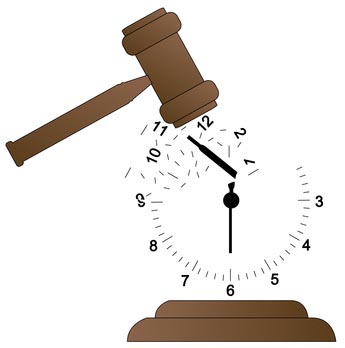
Other Articles of Interest:
- Common Defenses To Colorado Criminal Charges
- Legal Limitations On Governmental Power – by A Colorado Criminal Defense Lawyer
- Perjury (18-8-503), (18-8-504).
- The Most Common Defenses Asserted At Trial
- Prior Felony Convictions In Colorado – Applications For Probation § 18-1.3-201
